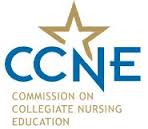Physical & Psychological Expectations of Nursing Students
To be admitted to and progress in the Pacific Lutheran University School of Nursing, a student must be aware of and meet the requirements identified in the following description of work performance of practicing nursing professionals.
Title:
Baccalaureate Nursing Student (also applies to Entry-Level MSN students)
Work Hours:
Varies with shifts and setting and includes 12-hour shifts, (plus travel to clinical sites throughout the Puget Sound area)
Full/Part Time:
Full and Part Time
General Responsibilities/Requirements:
The nursing student is responsible for performing patient assessment, planning care delivery, performing nursing intervention and teaching patients, family members and communities about health and illness. Responsibilities include reviewing the patient’s chart, assessing the patient’s medical condition, complaints and concerns, assessing biopsychosocial and spiritual aspects of the patient’s health, carrying out physician’s orders, and determining appropriate treatment and medication. Direct care includes administering medications and completing nursing procedures such as catheterization, suctioning, dressing changes and responding to emergencies as they occur, as well as counseling, teaching and crisis intervention. The student also assists patients with meals, positioning, transporting and transferring in and out of bed, and walking. Information gathered about the patient is regularly and appropriately communicated to the health care team. The student also engages in community-based activities in which care to families, groups and target populations is delivered. This requires participation in agency and independent activities.
Machines, Tools, or Moving Equipment:
The student uses a variety of medical supplies and equipment; e.g., stethoscope, blood pressure cuff, IV poles, tubing and pumps, portable monitoring units, needles, clamps and scissors, syringes, patient support bars, hospital beds, wheelchairs, etc.
Percent of Time Spent:
Sitting 10%
Standing 50%
Walking 40%
Personal Strengths:
The student is expected to accept persons whose appearance, condition and behavior and values may be in conflict with his/her own. Nursing care including all needed personal health services must be carried out regardless of the patient’s race, ethnicity, age, gender, religious preference or sexual orientation.
In collaboration with other health team members, the student works toward the goal of easing the burden of physical and emotional pain of those assigned to his/her care. In order to assist others in regaining health, it is essential that the student maintains his/her own level of wellness.
Working Environment:
There are many settings in which the nursing student gains experience, e.g., hospital, nursing home, public health and community agencies, home visits, school setting and clinics. The most physically demanding may be in the hospital or nursing home setting where there is a nursing station with patient rooms in the surrounding area. The flooring often varies and students are expected to walk distances while monitoring patients’ conditions. These active, busy environments require the ability to keep track of a large number of activities at a time.
Overall Requirements:
Essential functions necessary to complete the program of study leading to a BSN degree at Pacific Lutheran University include the use of all the senses to gather information, e.g., observing color changes in the skin, hearing heart and lung sounds through a stethoscope, palpating pulses and feeling hot/cold skin. The program requires sufficient fine motor abilities to manipulate equipment in a safe and effective manner. The program requires the use of speech, reading and writing to communicate with clients, families, and other health care professionals. Patient care requires the ability to synthesize information from a variety of sources and apply it in making decisions regarding safe client care. The student always maintains a level of consciousness and alertness that ensures patient safety. The student has the emotional stability and flexibility to direct care functions, engage in therapeutic communications and counseling, and function effectively in situations of stress. This includes the capacity to function outside the personal comfort zone, placing clients’ needs first.
During each shift or clinical experience, the nursing student is assigned patient care which includes medication administration and direct care functions. Assistance in lifting is usually available for items that are too heavy. The student can be relieved of emergency response duties, but must be prepared to administer emergency care if other personnel are not available.
The student must notify the School of Nursing of any restrictions or modifications that may need to be considered.
Students are not expected to directly participate in medical procedures that are in conflict with personal beliefs and values. This does not preclude, however, the obligation to learn the underlying principles and take care of clients before and after such procedures.




Social Media